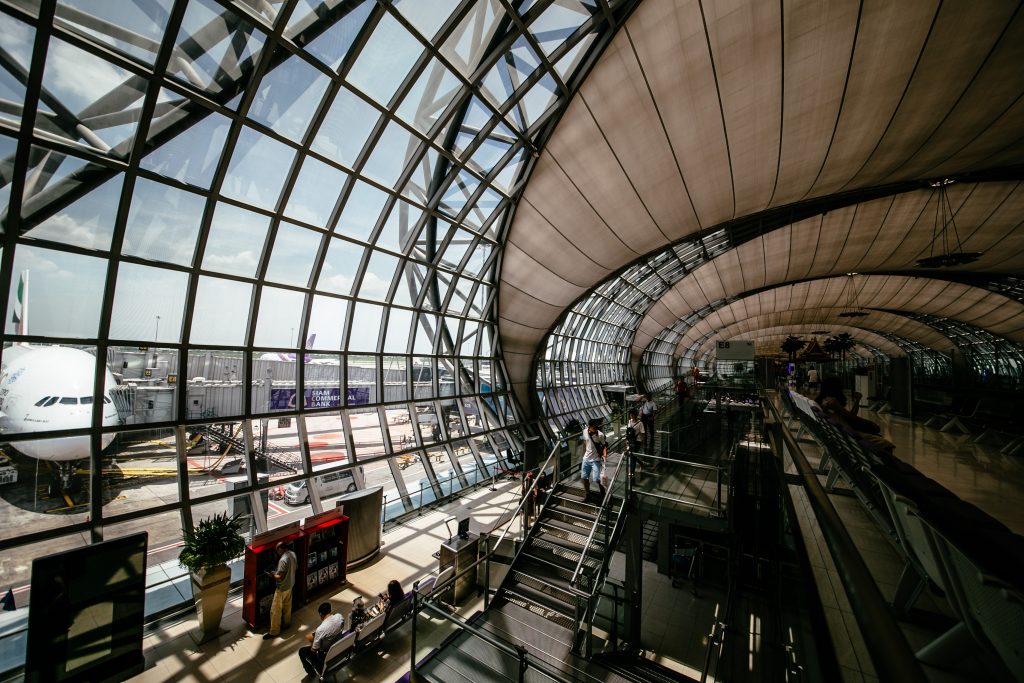
Feeling sleepy before sundown or incessant irritability are not the only side effects from traveling across time zones. In fact, failing to properly prepare for jet lag can lead to numerous negative health effects, including cancer, memory depletion, hormone imbalances, digestive problems and much more. If you’re a frequent flyer who’s often crossing time zones to reach exotic destinations, taking a few necessary measures to remain vitalized is key.


The human body has its own internal clock, or circadian rhythms, that match the individual’s regular sleep patterns. Circadian rhythms send signals to your body to indicate when to wake up and when to go to sleep. As a devoted traveler it’s not uncommon for your sleep schedule to become askew. If you constantly travel overseas or across multiple time zones, there’s a much higher probability that you will suffer from severe jet lag. However, with proper nutrition and preparation, the effects of this so-called “jet lag disorder” can be lessened.
Nobody wants to reduce their precious vacation time being stuck in bed due to sleep deprivation, which can take numerous days to recover from. However, maintaining a proper diet while traveling can greatly reduced the symptoms often associated with jet lag. Registered dietitian and nutritionist, Angela Lemond, states that “sleep deprivation messes up your feelings of hunger and satiety. So you’re more at risk to compensate by overeating.” Taking this into account, we present the following recommended dietary precautions that include not only what you eat, but also when you eat.

Determining your destination’s designated mealtime in order to properly fast and consume accordingly will help set your body up for success upon arrival. A study published in Current Biology indicates that altering your meal schedule is the quickest way to adjust to a new time zone. By fasting before you fly, and delaying your mealtime to when you arrive at your destination, you will help your body adjust to the new time zone much easier.
When it comes to your travel diet, the intake of high-protein, complex carbs, and plant-based foods will help stabilize your energy level. As many fast-food restaurants infiltrate airports, indulging in delicious comfort food seems like a great idea, but typically provides the opposite of “comfort” throughout the duration of your travel. By consuming large amounts of processed food, your body will use more energy trying to metabolize your meal instead of applying that energy to other areas in need. Furthermore, bringing protein-rich snacks can help curb your appetite until it’s the right time to eat. Whole foods such as raw nuts, peanut or almond butter, whole grain crackers and hummus, or protein bars are great options for on-the-go travelers. Raw fruits and veggies, especially cherries and carrots, are perfect snacking options as they provide proper amounts of fiber, which can reduce inflammation and keep your digestion running smoothly.


Another valuable consideration, and perhaps the most important factor of wellness while flying, and in general, is adequate hydration. Drinking plentiful amounts of water (hint: adding citrus will help stimulate digestion), herbal teas, and/or 100% natural fruit juices without added sugars is crucial. Not only is it important to stay hydrated while in flight, but ensuring that you drink more-than-enough water in the days leading up to your travel plans will allow your body to remain vitalized throughout your journey. Visiting a local juicery prior to departure is a great idea for those looking for an efficient, plentiful source of nutrients. Superfood ingredients such as leafy greens, ginger, turmeric and antioxidant berries are available at most juice bars and have proven to supply the body with vitamins necessary for healing and rejuvenation. Another simple option is stocking up on supplements that provide multiple vitamins and minerals in each capsule. One popular superfood staple is Pure Synergy’s all-inclusive superfood tablets.
Although disappointing for many, pleasurable beverages containing caffeine or alcohol are inadvisable when traveling afar. In addition to the grogginess alcohol seems to deliver, both contain dehydrating substances with stimulants that disrupt sleep patterns and diminish the quality of your sleep. Equivalently, the consumption of high-fat or heavily glucose-enriched meals can also leave you feeling restless amidst your exhaustion.

It’s important to plan ahead and make sure you are equipped with suitable nutrients and effective health practices prior to your departure. Jet lag affects every individual differently and can have lasting effects if not addressed properly. Luckily, the desire for a healthy lifestyle and wellbeing continues to increase rapidly. Many airports across the nation have recognized the demand for health-focused options and are stepping up their cuisine selection, thus making conscious choices more accessible to all. The next time you jet set overseas, consider trying these helpful tips to reduce the effects of your jet lag.

